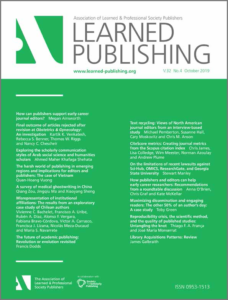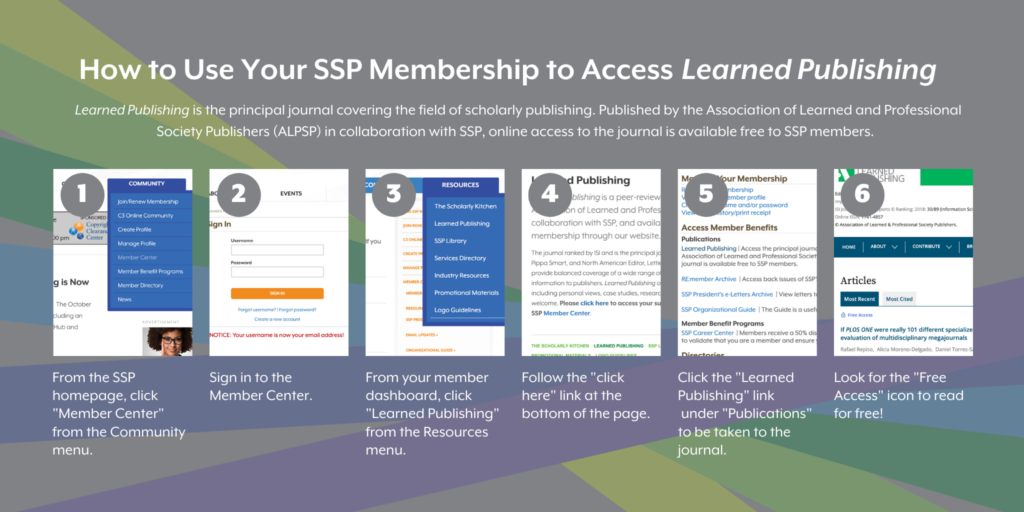We would like to remind members of SSP that the October 2023 Issue of Learned Publishing is available and that the January 2024 Special Issue has also just been released!
Learned Publishing (October 2023) | Learned Publishing (January 2024)
Highlights from the October issue include six open access research articles! The topics covered in these articles are wide ranging, including challenges with article review processes, editorial practices in for-profit and non-profit publishing houses, managing consent reporting with PRISMA guidelines, and accessibility of PDFs.
For SSP members embedded in the health and medical publishing communities, this issue offers a couple of helpful industry updates, including one about writing plain language summaries of publications for medical journals.
The January special issue contains research articles, case studies, and opinion pieces responding to the call for papers requesting work on the many and varied ways digital innovations are impacting both research outputs and scholarly publishing workflow practices.
The key digital innovations highlighted in this issue are the effect of AI on scholarly publishing, the use of large language models to assist in journal workflows, the realities of publishing fraud, tools used to limit the impact predatory journals on citations, and the early implications of the NIH data management and sharing policy on data sharing and reuse.
It is clear from the topics submitted to the January issue of Learned Publishing that our industry is very concerned with navigating the technological challenges that come with using machine learning in publication workflows. Using AI technologies, including ChatGPT, for good, or at least to limit the bad is of primary importance. While many of the articles document some of the darker ramifications of these technologies, some advances can be quite positive. As suggested by Sami Benchekroun: humans and machines can collaborate for the benefit of the scholarly communications ecosystem, if we take a close look at points where innovation can assist with research integrity and lean into improving those.
Happy reading!
 Michelle Urberg
Michelle Urberg
North American Editor
Learned Publishing
NOTE: All articles are free to SSP members and journal subscribers; those editorials, reviews, and articles using the ‘ALPSP Author Choice’ OA option are now free to all. Also, be sure to sign up to receive an email or RSS alert every time a new issue goes online.
SSP members – please log in to the member center on the SSP website to access the full content.




Join the Conversation
You must be logged in to post a comment.